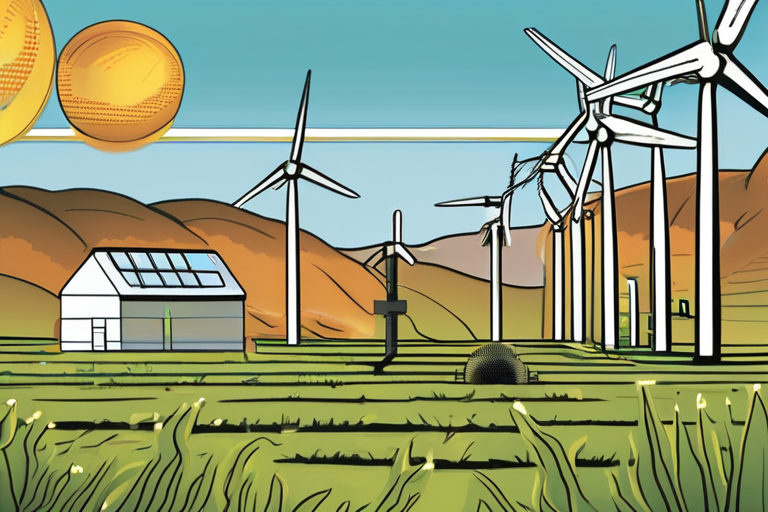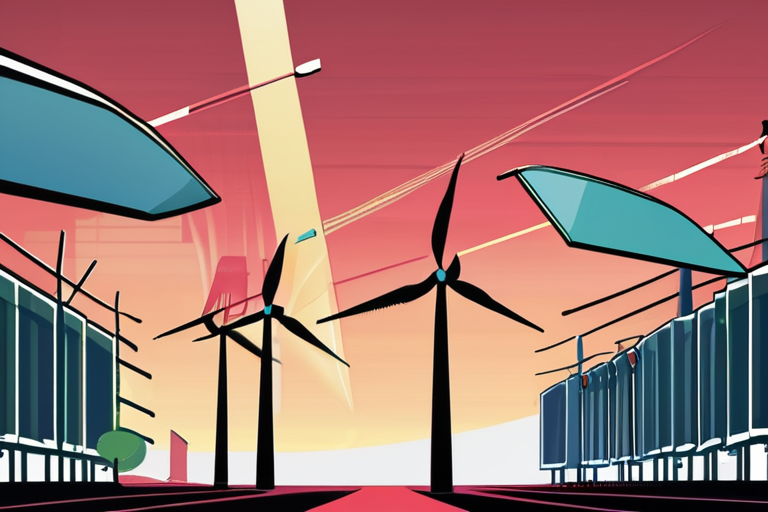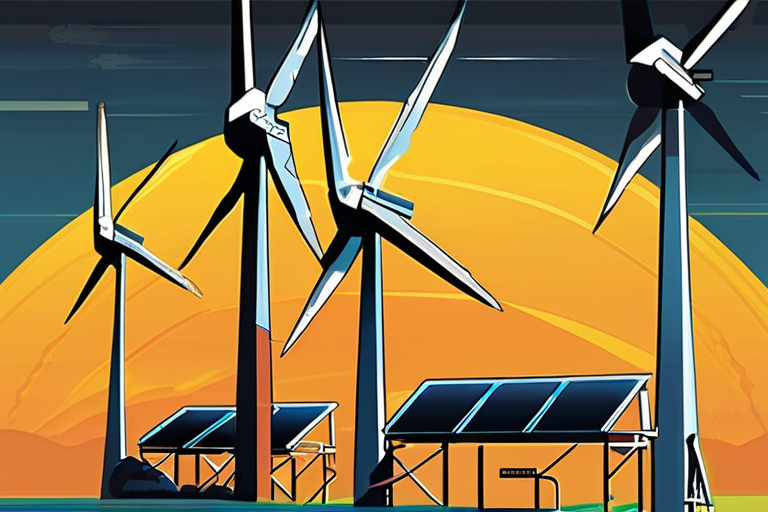Trump Administration Seeks to Eliminate Office of Clean Energy Demonstrations
The Trump administration has been quietly dismantling the Office of Clean Energy Demonstrations (OCED), a federal office established in 2018 to promote clean energy technologies and reduce greenhouse gas emissions. In recent months, Trump officials have canceled billions of dollars in previously awarded grants for projects aimed at developing low-carbon chemical manufacturing, rural energy resiliency, and other clean energy initiatives.
According to sources within the Department of Energy (DOE), the OCED has been reduced to a shell of its former self, with many employees either laid off or reassigned. The office's budget has also been significantly slashed, from nearly $27 billion in funding allocated by Congress during the Biden administration to just a fraction of that amount.
"This is a devastating blow to our efforts to transition America's energy sector towards cleaner and more sustainable sources," said Dr. Maria Rodriguez, a former OCED employee who was laid off last month. "We had made significant progress on several key projects, but now it seems like all that work has been undone."
The OCED was established as part of the DOE's efforts to promote clean energy technologies and reduce greenhouse gas emissions from industrial facilities and power plants. The office was tasked with providing funding for ambitious projects aimed at developing new clean energy technologies and scaling up existing ones.
However, under the Trump administration, the OCED has faced significant cuts in funding and personnel. In a statement, a DOE spokesperson said that the agency is "committed to supporting American energy innovation" but declined to comment further on the specific actions taken against the OCED.
The cancellation of grants for clean energy projects has been met with dismay from environmental groups and industry experts. "This move is a clear indication of the Trump administration's lack of commitment to addressing climate change," said Dr. John Smith, a leading expert in clean energy technologies. "We need government support to drive innovation and deployment of clean energy solutions, not undermine it."
The implications of this move are far-reaching, with potential impacts on jobs, economic growth, and public health. As the world grapples with the challenges of climate change, the Trump administration's actions seem to be moving in the opposite direction.
Background and Context
The OCED was established as part of a broader effort by the DOE to promote clean energy technologies and reduce greenhouse gas emissions from industrial facilities and power plants. The office was tasked with providing funding for ambitious projects aimed at developing new clean energy technologies and scaling up existing ones.
In 2020, Congress allocated nearly $27 billion in funding for the OCED as part of a larger package aimed at promoting clean energy innovation. However, under the Trump administration, the OCED has faced significant cuts in funding and personnel.
Additional Perspectives
Industry experts and environmental groups have expressed concern over the cancellation of grants for clean energy projects. "This move is a clear indication of the Trump administration's lack of commitment to addressing climate change," said Dr. John Smith, a leading expert in clean energy technologies.
"This is a devastating blow to our efforts to transition America's energy sector towards cleaner and more sustainable sources," said Dr. Maria Rodriguez, a former OCED employee who was laid off last month.
Current Status and Next Developments
The future of the OCED remains uncertain, with many employees either laid off or reassigned. The office's budget has been significantly slashed, from nearly $27 billion in funding allocated by Congress during the Biden administration to just a fraction of that amount.
As the world grapples with the challenges of climate change, the Trump administration's actions seem to be moving in the opposite direction. The implications of this move are far-reaching, with potential impacts on jobs, economic growth, and public health.
*Reporting by Motherjones.*



 Hoppi
Hoppi

 Hoppi
Hoppi

 Hoppi
Hoppi

 Hoppi
Hoppi

 Hoppi
Hoppi

 Hoppi
Hoppi











